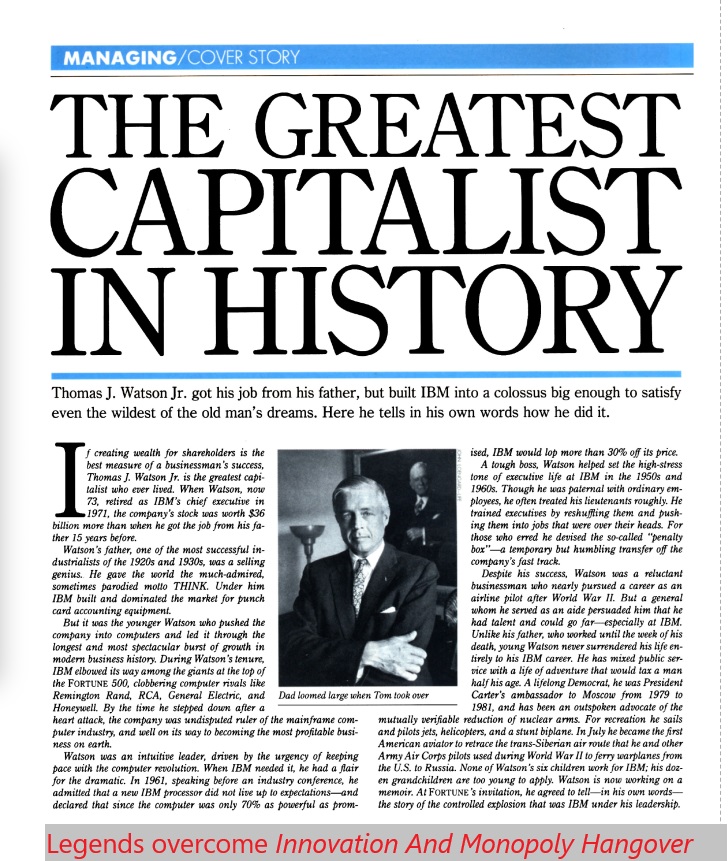
‘The son of IBM’s founder, Thomas J. Watson Jr took Big Blue’s reins in 1956 and made a critical decision: to ditch electromechanical punch card systems, then the company’s bread and butter, in favor of electronic computers—which, in his words, didn’t fire his father’s imagination. By the time Watson retired 15 years later, businesses were silicon-obsessed and IBM’s annual sales were more than 250 times (!) what they were when he took the top job.’ – Fortune Magazine.
As a result of what he did, the magazine wrote a piece about him, baptising him as the “The Greatest Capitalist in History” in 1987.
I have called the situation where companies pioneer sectors, win and dominate them, but refuse to leave despite what the market is telling them, Innovation And Monopoly Hangover.
Register for Tekedia Mini-MBA edition 19 (Feb 9 – May 2, 2026): big discounts for early bird.
Tekedia AI in Business Masterclass opens registrations.
Join Tekedia Capital Syndicate and co-invest in great global startups.
Register for Tekedia AI Lab: From Technical Design to Deployment (next edition begins Jan 24 2026).
In business, it takes a lot of boldness to overcome the hangover? Could Kodak have left thin film photography when it invented the first digital camera in 1975? It was digital camera evolution that destroyed Kodak.
Could Blackberry (Research in Motion) have left the physical keyboard which was working for it, for the virtual one it also had on the shelf, without giving the Apple iPhone more ways to differentiate?
The fact is this: what is working today may not work tomorrow. And that is why Google’s Alphabet is the finest technology company in the world. From quantum computing to autonomous vehicles, from medical research to mobile devices, and more, Alphabet is peerless in all forms, to thrive today, and also win tomorrow, because through different clusters, it is calibrating out any hangover possible.
Comment on Feed
Excellent take, Ndubuisi.
This is why it is very necessary for business leaders to remain perpetually curious:
What is possible? What more can achieved? What emerging opportunities should be explored?
McKinsey’s Three Horizons Framework is useful in setting growth priorities over time:
Horizon 1: Optimise current business operations for greater efficiency and sustainability.
Horizon 2: Expand by exploring adjacent opportunities and scaling new initiatives.
Horizon 3: Drive strategic transformation by consolidating new activities and adapting to evolving dynamics.
Unfortunately, most teams focus only on Horizon 1, missing the long-term potential in Horizons 2 and 3.
---
Connect via my
LinkedIn |
Facebook |
X |
TikTok |
Instagram |
YouTube



